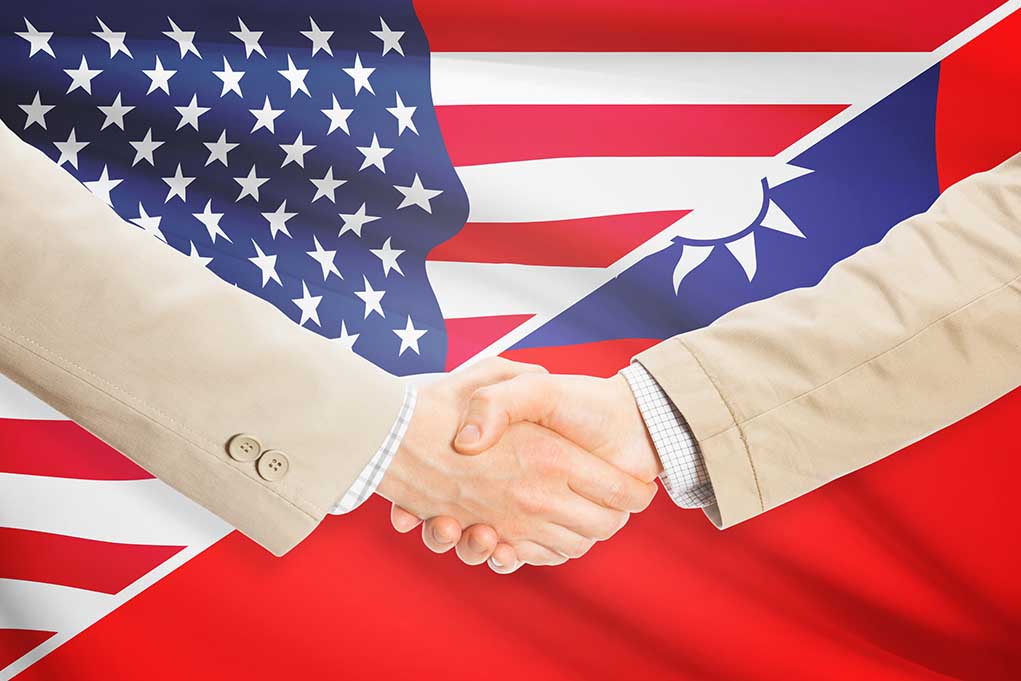
Despite Trump’s trade tariffs causing anxiety among Taiwanese business leaders, Taiwan is aggressively pursuing expanded military and technology partnerships with the United States to counter China’s growing threats.
Key Takeaways
- Taiwan seeks deeper US military and technological cooperation despite facing challenges from Trump’s tariff policies
- Taiwanese officials propose joint drone development projects that combine American innovation with Taiwan’s manufacturing expertise
- President Lai Ching-te has personally met with major Taiwanese company heads ten times to address tariff concerns
- Approximately 60% of Taiwan’s exports to the US are in the information technology sector, primarily vital semiconductors
- The United States remains Taiwan’s primary security ally against Chinese aggression
Taiwan Balances Trade Tensions with Security Needs
Taiwan continues to strengthen its critical alliance with the United States despite facing economic challenges caused by President Trump’s tariff policies. As China ramps up military pressure on the island nation, Taiwan’s officials are emphasizing that security cooperation must transcend trade disagreements. The strategic relationship between Taiwan and the US has become increasingly vital in recent years, with Taiwan providing essential semiconductor technology while relying on American security guarantees against Chinese territorial claims and military threats.
“We have seen the whole world express concern over the tariffs issue. Our president, Lai Ching-te, has already met with the heads of major Taiwanese companies ten times, which also shows their great concern,” stated Kung Ming-hsin, head of Taiwan’s National Development Council.
While Taiwan’s business leaders worry about the economic impact of U.S tariffs, the Taiwanese government recognizes that maintaining strong defense ties with America remains non-negotiable. President Trump paused the implementation of these tariffs for 90 days, providing a temporary reprieve while both sides seek longer-term solutions. This complex relationship highlights the delicate balance Taiwan must maintain—protecting its economic interests while securing vital military support against Chinese aggression.
Proposed Joint Research and Development Initiatives
During a recent visit to Washington, Taiwanese official Kung Ming-hsin proposed an innovative solution to strengthen bilateral ties despite trade tensions. By establishing joint research and development projects, particularly in drone technology, Taiwan hopes to create mutual benefits that transcend tariff disputes. This approach leverages each country’s strengths—American innovation paired with Taiwan’s world-class manufacturing capabilities—to enhance security cooperation while potentially creating economic opportunities that could offset tariff impacts.
“We can have research and development together in the area of drones, for example,” said Kung Ming-hsin, head of Taiwan’s National Development Council.
These proposed collaborations would serve multiple strategic objectives. Beyond strengthening Taiwan’s defense capabilities against Chinese aggression, they would deepen industrial and technological ties between the two democracies. The development of advanced drone systems could provide Taiwan with enhanced surveillance capabilities to monitor Chinese military activities while giving American companies access to Taiwan’s unparalleled manufacturing expertise. This approach represents a pragmatic pathway to maintaining the alliance despite trade frictions.
Taiwan’s Semiconductor Leverage in US Relations
Taiwan’s dominant position in global semiconductor manufacturing remains its strongest card in navigating relations with the United States. Approximately 60% of Taiwan’s exports to the US are in the information technology sector, primarily advanced semiconductors that power everything from consumer electronics to sophisticated military systems. This technological interdependence creates powerful incentives for both nations to find workable solutions to trade disputes, as disruptions would harm critical American industries.
“The United States has advanced technologies, and Taiwan is very strong in mass production of these kinds of advanced technologies,” said Kung Ming-hsin, head of Taiwan’s National Development Council.
Taiwan’s semiconductor industry serves as both an economic engine and a strategic asset in its relationship with the United States. American defense systems rely heavily on Taiwanese chips, creating a security incentive for the US to maintain strong ties. President Trump recognizes this technological interdependence, which likely influenced the decision to pause tariff implementation. As global technology competition with China intensifies, Taiwan’s manufacturing prowess becomes increasingly valuable to American security interests, potentially outweighing short-term trade considerations.

